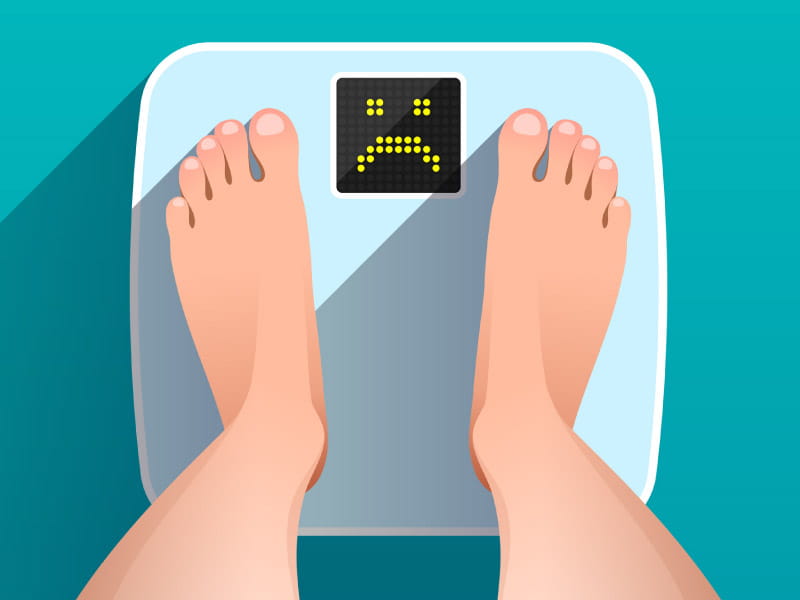Obesity is a medical condition in which a person has an excess amount of body fat that may negatively affect their health. It is commonly measured using the Body Mass Index (BMI), a number calculated from a person’s height and weight. A BMI of 30 or higher is generally considered obese.
Obesity increases the risk of several serious health problems, including heart disease, type 2 diabetes, high blood pressure, stroke, certain cancers, and joint problems. It can also affect mental health, leading to issues like low self-esteem, anxiety, or depression.

Obesity is often caused by :
a combination of genetic, behavioral, environmental, and medical factors. One of the most common causes is consuming more calories than the body uses, especially from high-fat, high-sugar foods combined with a lack of physical activity. Sedentary lifestyles, such as spending long hours sitting at work, school, or in front of screens, contribute significantly to weight gain. Genetics can also play a role, as some people are more likely to gain weight due to inherited traits that affect metabolism or fat storage. In addition, certain medical conditions like hypothyroidism, polycystic ovary syndrome (PCOS), and Cushing’s syndrome, or medications such as antidepressants and steroids, can lead to weight gain. Emotional factors, such as stress, anxiety, or depression, may cause people to overeat or turn to food for comfort. The modern environment—with easy access to fast food, larger portion sizes, and limited opportunities for physical activity—also makes it easier to gain weight and harder to lose it.
Poor diet (high in calories, sugar, and unhealthy fats)
Lack of physical activity
Genetics
Hormonal imbalances
Emotional or psychological factors
Certain medical conditions or medications

Solution to Obesity
Obesity can be managed and often prevented through a combination of healthy lifestyle changes, medical support, and long-term commitment. One of the most effective solutions is adopting a balanced diet that is rich in fruits, vegetables, whole grains, and lean proteins, while limiting foods high in sugar, unhealthy fats, and excess calories. Regular physical activity is also essential—adults are generally recommended to get at least 150 minutes of moderate-intensity exercise per week. In addition to lifestyle changes, behavioral therapy can help individuals understand and change unhealthy eating and activity habits. For some people, medical treatments such as weight-loss medications or, in more severe cases, bariatric surgery may be recommended under a doctor’s supervision. Support from healthcare providers, family, and community programs can make it easier to stay motivated and consistent. Ultimately, the most sustainable solution to obesity involves creating a healthier routine that works long-term, rather than relying on quick fixes or extreme diets.
1. Healthy Eating Habits
- Eat more fruits, vegetables, whole grains, and lean proteins.
- Reduce intake of sugary drinks, fast food, and processed snacks.
- Control portion sizes and avoid overeating.
- Practice mindful eating (pay attention to hunger and fullness cues).
2. Regular Physical Activity
- Aim for at least 150 minutes of moderate exercise per week (e.g., walking, cycling, swimming).
- Include strength training exercises 2–3 times a week.
- Reduce sedentary time (limit screen time, take breaks from sitting).
3. Behavior and Lifestyle Changes
- Set realistic, long-term goals for weight loss and health.
- Use food and activity tracking apps to monitor progress.
- Identify and manage emotional eating triggers.
- Get enough sleep and manage stress levels.
4. Medical Support
- Consult a doctor or registered dietitian for a personalized plan.
- Consider weight-loss medications if recommended by a healthcare provider.
- In severe cases, bariatric surgery may be an option (gastric bypass, sleeve gastrectomy).
5. Support and Motivation
- Join a weight loss or wellness support group.
- Involve family or friends for encouragement.
- Seek counseling or therapy if emotional issues affect eating behavior.
Here is a commonly used supplements that may help with weight management and support obesity treatment when combined with a healthy diet and exercise.

Lumilean is a dietary supplement designed for weight management and appetite control, featuring natural ingredients such as green tea extract, berberine, and cinnamon. It aims to regulate blood sugar, boost metabolism, and support fat loss.
Key ingredients and their effects:
Berberine: Improves insulin sensitivity and supports a healthy metabolism.
Cinnamon: Helps regulate blood sugar levels after meals.
Gymnema Sylvestre: Reduces sugar cravings and supports carbohydrate management.
Green tea extract, caffeine: Accelerate metabolism and promote fat loss.
